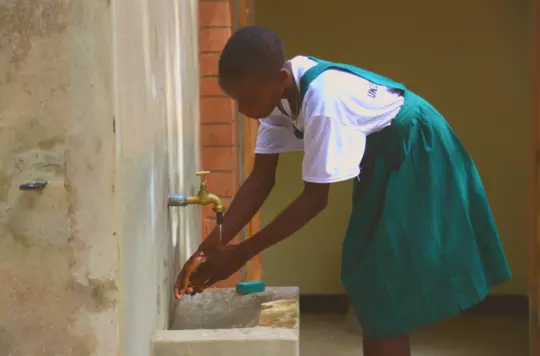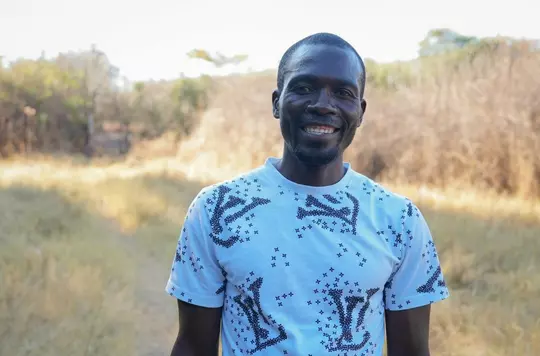23 June 2023
Improving water access: Inside the Wash Project in Malawi
Interview by Hayley Still

Projects Manager Mathews Tulombolombo talks to Hayley Still about the impact of the Integrated Wash project in Malawi’s Karonga District.
What is the Integrated Wash project?
The project tackles issues of water, sanitation and hygiene (Wash). It is a widespread project and includes drilling boreholes, raising awareness about hygiene and sanitation, addressing issues around gender equality and building toilet blocks.
This work goes together with training kids in handwashing and hygiene management.
Agriculture also plays a part, such as teaching community members about conservation agriculture to ensure that households can be food secure throughout the year.
What does the project aim to achieve?
Improving water access at health centres is a focus. At the beginning, we visited the health clinic to get a baseline survey. We found that the provision of water, sanitation and hygiene facilities was very low.
It is not acceptable for a health centre to draw water from a borehole. Lack of water is a challenge to the health clinics because they need to carry it into the clinic. Running water is needed.
How has the project impacted the area?
In our baseline survey, we checked the number of people who were attending the clinic for cholera and diarrhoea. Now, it is three years since we have had a case of cholera. There are still some cases of diarrhoea in the community because, although we have installed a number of boreholes, more are still needed.
We have seen dramatic change in the children. They are no longer waking up very early to fetch water. They are now in school on time and able to listen to their teachers. Their health is no longer compromised.
We have built toilet blocks in schools for the students. This includes a room that girls can use to change when there are menstruating. We also distribute sanitary towels to make sure girls don’t stay home during their period. There is also a first aid kit with painkillers available for the girls. This ensures that they can stay in school and not miss class.
What role do young people play?
Children are encouraged to be agents of change. Sanitation clubs provide training for young people about sanitation and hygiene. For example, handwashing is key for people to be safe from disease, as is having a toilet to use.
Children are encouraged to take these messages home to their families – behavioural change is an important part of the project and children can influence a lot at home, through their parents and their peers. So now, what is happening in school is also happening at home.
How are corps officers involved in the project?
Officers work hand in hand with the development office. They attend project activities and training sessions, and they provide pastoral support to community members. Working with officers is a must. Projects are not generated from territorial headquarters; they are generated by the community. For example, it was a corps officer in Karonga who raised this project.
What are your hopes for the future?
We hope to expand The Salvation Army’s catchment area. It doesn’t cover the whole district – we do not have the funding to cover everywhere. Although we have put in some water points, it is still not enough. The need for water is huge. We really want to reach the areas that still have zero water access.
Written by

Hayley Still
UK Engagement Co-ordinator, International Development
Discover more

Hayley Still introduces a Helping-Hand fundraising challenge to support the Army’s work constructing school toilets around the world.

Hayley Still shines a spotlight on the difference safe and clean water make – the focus of this year's Helping-Hand Appeal.
